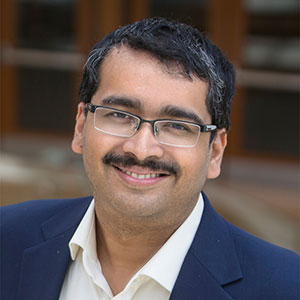Published: August 6, 2021

If you are anything like me, customer loyalty programs can heavily influence your purchasing habits. I may not even be planning to shop until I realize I have reward points to burn, or special members-only savings, and suddenly my virtual shopping cart is full (while my wallet is a little lighter).
Joining me to share some very intriguing insight into how these kinds of programs work and what the actual benefit is to the businesses that utilize them is Arun Gopalakrishnan with Rice University. His study, “Can Non-tiered Customer Loyalty Programs Be Profitable,” was recently published in the INFORMS journal Marketing Science.
First of all, we find that customer value in the long run increases by almost 30% because of joining a loyalty program. So while that’s good news for loyalty programs, the bigger surprise for us is why that happened. So it turns out it didn’t increase the value of this program by getting people to go to the stores more often or spend more money on their visits, the main upside of the program was it got people to stick around with the firm as opposed to walking out and taking their business to other competitors.
Interviewed this episode:

Arun Gopalakrishnan
Rice University
Arun is an Assistant Professor of Marketing and teaches electives on Customer Lifetime Value and Advanced Marketing Research in the full-time, evening, and weekend MBA programs. His research focuses primarily on how firms can grow revenue through customer relationship management. He is interested in measuring the effects of marketing initiatives such as loyalty programs, digital coupons, and email communications on short-term and long-term customer value. He is also interested in developing econometric and statistical methods to uncover customer insights from big data.
Before joining Rice, Arun was an assistant professor at Olin Business School, Washington University in St Louis. He received his Ph.D. and M.S. degrees from the Wharton School, an M.B.A from Penn State, and a B.E. in Electrical Engineering from the University of Auckland. Prior to academia, Arun worked as a marketing manager at E.I. DuPont de Nemours and in R&D at Motorola Labs.
Episode Transcript
Contact us to request transcript.
Want to learn more? Check out the additional resources and links listed below for more information about what was discussed in the episode.
Do Customer Loyalty Programs Really Help Sellers Make Money?
Can Non-tiered Customer Loyalty Programs Be Profitable?, Marketing Science
